Week-3
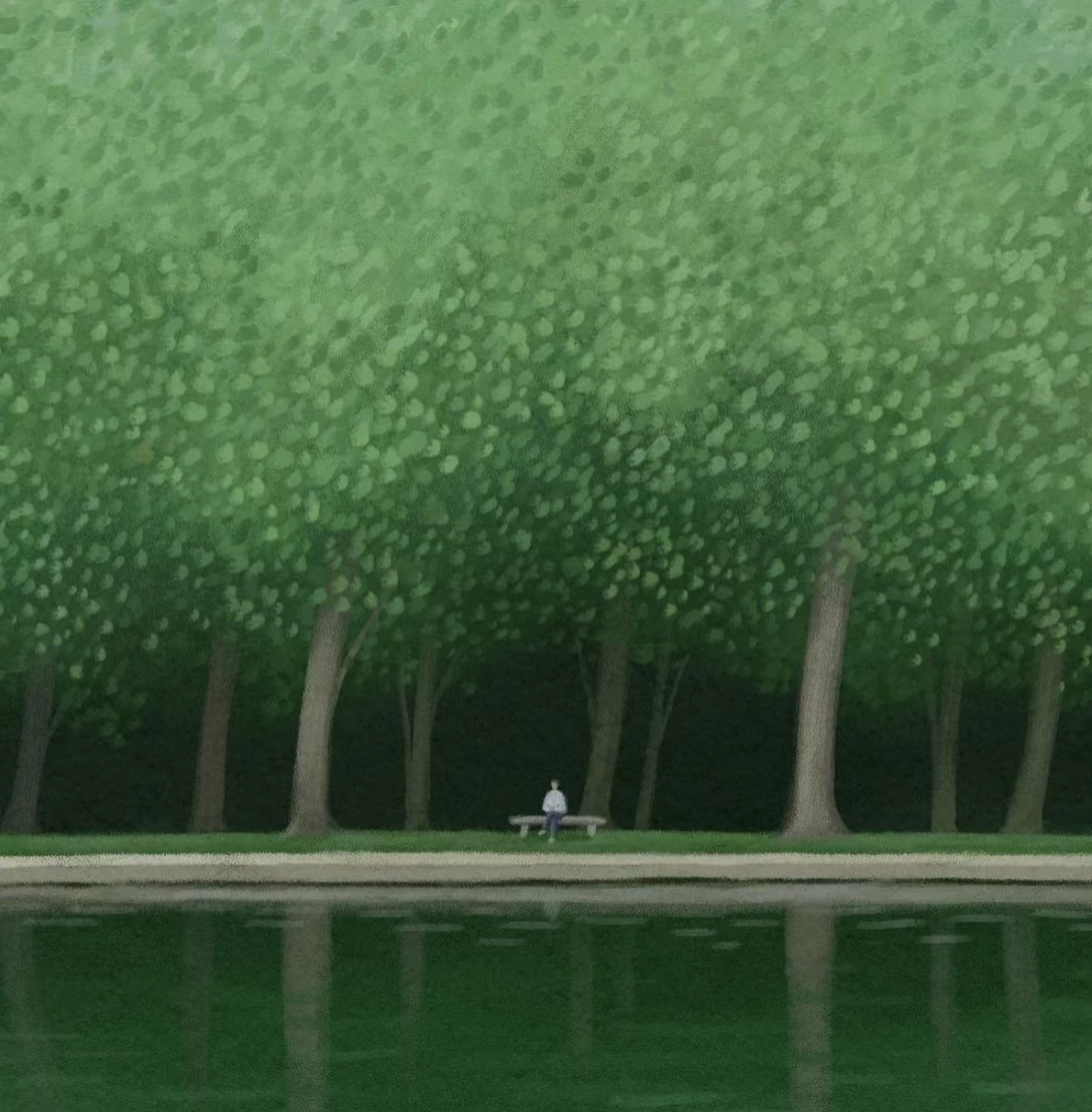
In the third week of lectures, I learned that the consumer’s values and the benefit of some groups are related to the problems that design should solves. Since I was also attended product design courses in my undergraduate study, this also caused me to think more deeply.
As a product designer, I only thought about how to improve the service life of products, more green-friendly materials and other design issues, but now putting aside of the product designers, from the perspective of consumers and the market, changing the market and consumers’ consumption concepts, lifestyles or values may also be a more interesting perspective.
As mentioned in the course , if people want to change your lifestyle, they can try to stay away from consumerism (or avoid low-quality and low-priced commodities ) and try to get fun from green, thereby rebuilding a greener lifestyle and urban form, culture , publicity and the media can play a very big role here.
Suzanne Fossey’s children’s picture book ‘the plastic bottle’ starts from the perspective of a plastic bottle and illustrates the story of how to dispose of the plastic bottle after use and finally recycle it. As student in illustration, I think an interesting picture book story can be more touching children to help them establish a greener life concept and continue this lifestyle.
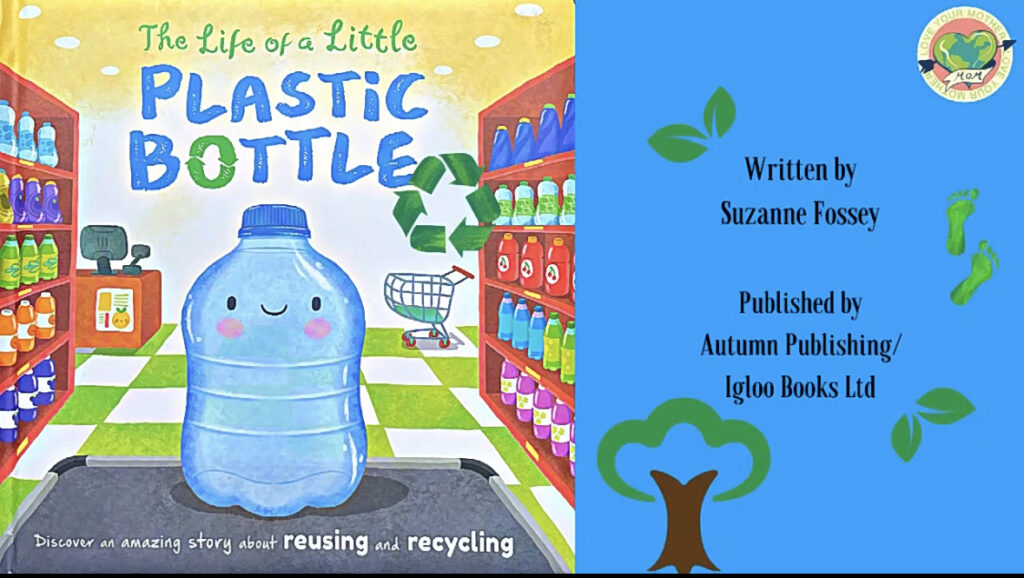

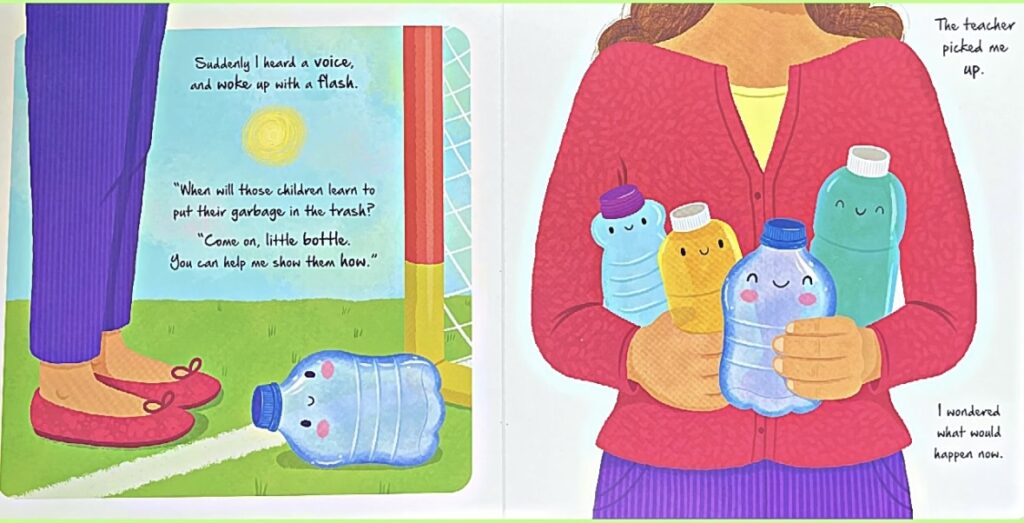

After reading this book, I was very curious about how plastic bottles are recycled and reused in factories? I looked up for some information, and found out that after the plastic bottles are collected, they undergo a sorting process at recycling facilities. This sorting is crucial to separate different types of plastics because various plastics have distinct properties and recycling requirements. Common types include PET (polyethylene terephthalate) and HDPE (high-density polyethylene).
Once sorted, the bottles go through a cleaning process to remove labels, caps, and any remaining contaminants. This enhances the quality of the recycled material. The cleaned plastic bottles are then shredded into small pieces.
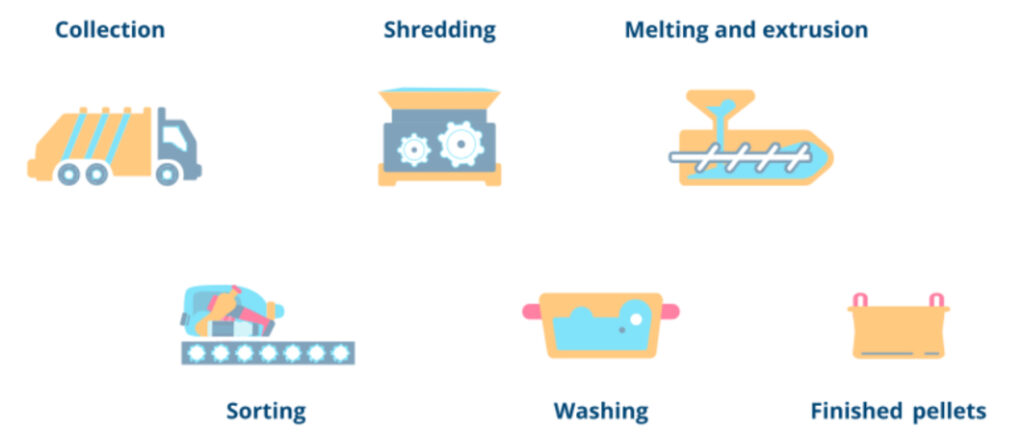
Illustration on recycling plastics on https://www.bpf.co.uk/plastipedia/sustainability/how-is-plastic-recycled-a-step-by-step-guide-to-recycling.aspx
The shredded plastic undergoes a melting process to transform it into molten plastic. This molten plastic is then formed into small pellets. These pellets serve as raw material for manufacturing new plastic products, such as bottles, containers, or other plastic items.
There are also some organizations are concentrate dealing with the nowadays plastic issues, such as EndPlasticWaste.org, This non-governmental organization is working to eliminate plastic waste and collaborate with other environmental foundations to provide more solutions for the plastic products, they are trying some more possibilities at the plastic recycling field.
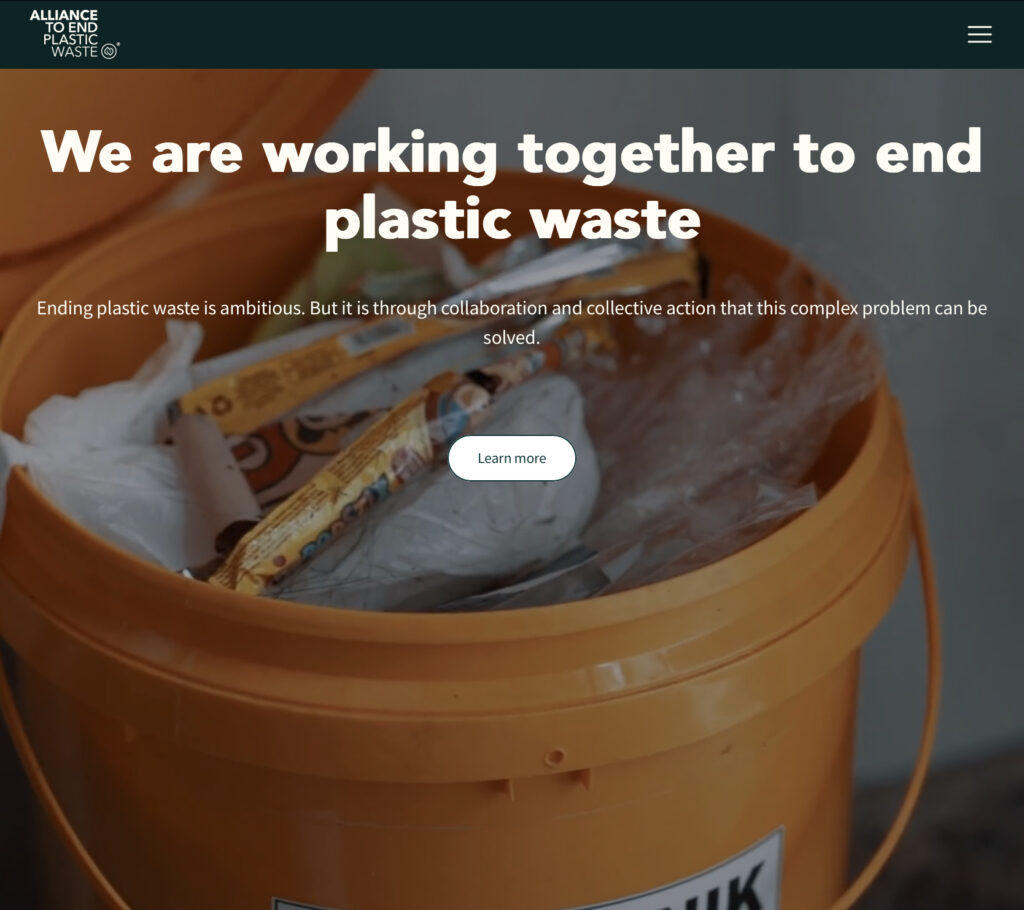
Recycling plastic bottles helps conserve resources, reduce energy consumption compared to producing new plastic, and minimizes the environmental impact associated with plastic waste. Public participation in recycling programs is crucial for the success of this sustainable practice.
Reference:
Fossey, S. and Bohórquez, G. (2020) The life of a little plastic bottle. Cottage Farm, NN, UK: Autumn Publishing.
British Plastics Federation (no date) How is plastic recycled? A step by step guide to recycling, British Plastics Federation. Available at: https://www.bpf.co.uk/plastipedia/sustainability/how-is-plastic-recycled-a-step-by-step-guide-to-recycling.aspx (Accessed: 02 November 2023).
(No date) About – end plastic waste. Available at: https://endplasticwaste.org/about/ (Accessed: 24 October 2023).





